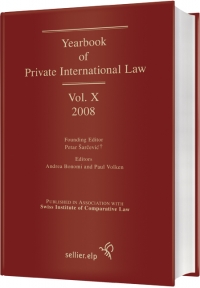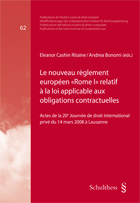Canadian National Class Action Judgment Not Recognized in Quebec
The Supreme Court of Canada has confirmed the decision of the Quebec Court of Appeal in Canada Post Corp. v. Lepine (available here). The decision flows from Canada Post’s termination, after only a year, of a lifetime internet service it sold to customers. This led to class proceedings in Quebec and Ontario. While aware of the proceedings in Quebec, the parties settled the class proceedings in Ontario in a judgment that purported to cover residents of Quebec. When the Quebec proceedings continued (due to dissatifaction with what was obtained under the Ontario settlement) the defendant sought to have the Ontario judgment recognized in Quebec.
Recognition of foreign judgments in Quebec is governed by Art 3155 of the Civil Code, and so this case is very centrally concerned both with civil law (rather than common law) and with interpreting the specific provisions of the Code. Art 3155 provides several bases for refusing to recognize a foreign judgment (see para. 22).
The first issue is whether the Ontario court had jurisdiction to grant the judgment. The Supreme Court of Canada devotes the most attention to this issue because it raises an interesting question within Quebec’s law on recognition. Quebec uses the “mirror principle” for assessing jurisdiction, and so would consider whether the foreign court had taken jurisdiction in accord with Quebec’s own approach to taking jurisdiction. That approach includes the doctrine of forum non conveniens. So this raised the issue of whether the Quebec court could hold that, because Ontario did not stay the proceedings at least as they concerned residents of Quebec, it did not have jurisdiction in the sense contemplated by the Code (para. 27). The Supreme Court of Canada rejects this approach: forum non conveniens issues are not to be considered in assessing the foreign court’s jurisdiction (paras. 34-37). The Ontario court had jurisdiction.
The second issue is whether the Ontario judgment contravened fundamental principles of procedure. Here the court holds that the class proceeding notices provided to residents of Quebec under the Ontario judgment were deficient. On the facts, this is an understandable conclusion: there is no question that the notices could have been clearer, especially as concerned the relation between the Ontario and Quebec proceedings (para. 45). This conclusion, in itself, is sufficient to resolve the case.
Third, Art 3155 provides a defence to recognition where essentially the same proceeding as that giving rise to the judgment is pending before the Quebec courts. Canada Post had advanced its argument based on a somewhat technical distinction between a proceeding seeking certification for a class action and the subsequently-certified action (para. 53) but the court rejected this distinction (para. 54). This aspect of the decision, interpreting Art 3155(4), could prove very important to the future of so-called national class actions in Canada, since it would then seem that as long as proceedings had started in Quebec, a decision from another province purporting to cover Quebec residents in the same class action would not be recognized in Quebec. This gives residents of Quebec a protection residents of the other provinces do not have.
This is a welcome decision on the first issue, an understandable decision on the second issue, and a decision that requires more consideration on the third issue.


 The contributions presented at the
The contributions presented at the